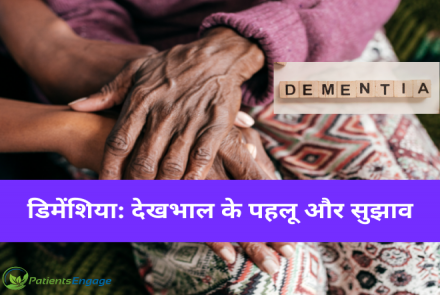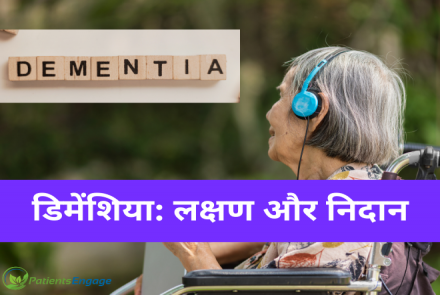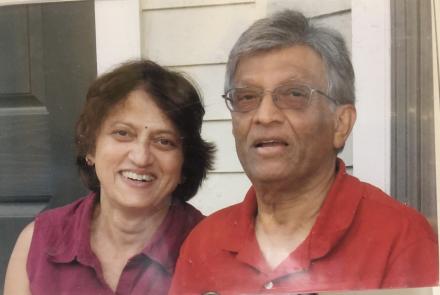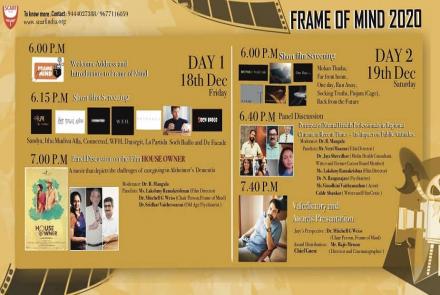
Swapna Kishore sheds light on the rarely talked about challenges of home care for late stage dementia, especially due to low and infrequent communication and multiple medical problems. She brings together her interviews with Dr. Soumya Hegde, a Bangalore-based Consultant Geriatric Psychiatrist who provides practical solutions.
Most discussions around dementia are about memory problems, confusion, wandering, withdrawal, aggression, etc. We rarely talk about later stages, when the loved one is typically bedridden and dependent for almost everything. Communication is infrequent and low, and multiple medical problems increase the care challenges. By the time their loved one reaches this advanced stage, family members have been providing care for many years, have made major life adjustments for it, and are often physically and mentally tired. Typically, they have not been able to plan for late-stage dementia care.
In India, most late-stage dementia care is done at home by family caregivers. Caregiver manuals from reputed organizations in developed nations assume that the person has been moved to an assisted living care when they describe late-stage care. Or they assume the loved one is at home with adequate support of trained staff, counsellors, emergency medical support, etc. At present, India’s scenario is different. Suitable information and suggestions and support for this care are almost non-existent. Our dementia organizations and volunteers typically focus on early and mid-stage dementia. So I have been trying to address this information gap by sharing material on late-stage care online; my focus is workable solutions for families in India.
Recently, as part of this work, I interviewed Dr. Soumya Hegde, a Bangalore-based Consultant Geriatric Psychiatrist with extensive experience in supporting people with dementia and their families through all stages — for persons living in full-time facilities as well as for persons being cared for at home by their families. In these interviews, she discusses home care for advanced dementia, and provides useful information and practical suggestions for various aspects.
Preparing the home for late-stage care:
Look at the beginning itself—how do we set up for late-stage care? Most of us don’t have large houses or much flexibility. In one case, the family put the mother’s bed in a spare bedroom that was also used as a storeroom. Only later did they realize that the isolated, cluttered room was depressing for the bedridden mother and for the caregiver spending the entire day with her.
It is common to underestimate the physical strain of bedridden care. Even a thin Amma is difficult to lift to an upright position for meals or to turn in bed to change sheets. Every task increases the fatigue and possibility of injury for the caregiver. Using things like bedrest or a hospital bed, and arranging the room better can make caregiving less strenuous. So much needs to be learned and organized. In our first interview, Dr. Hegde discusses how to prepare for home care for late-stage persons.
How to prepare for medical assistance for health complications and decline
Another thing I’ve seen is that caregivers are often unprepared for situations that require a doctor. Often regular blood tests and health check-ups are not done for years because they seemed unnecessary or are too difficult to arrange. Or the family couldn’t find a suitable doctor. Families sometimes tell me things like, “Thank God Papa is in great health except for dementia—we haven’t needed a doctor for years,” with a sense of relief.
The problem is, we cannot predict medical problems. Even Papa’s mild infection may leave us helpless. Where will we find a doctor suddenly, how will we take Papa there? There may be no doctor who knows Papa well enough to help. Multiple medical problems (infections, joint pains, cancer, heart problems, kidney problems, etc.) are common in old age, and the dementia makes things worse. How will we coordinate between multiple specialists? Tough decisions may be required. Our second late-stage care interview discusses how to get medical advice and prepare for the person’s decline, sharing suggestions for our Indian scenario.
Challenges of caring for a bedridden patient - Skin Care to Constipation
Every care task for a bedridden person is difficult, whether it is toileting or bathing or changing clothes or even feeding. Families usually manage to pick up basic home nursing techniques for essential daily tasks from nurses or videos, and these tasks take up all their energy and attention. But it is common to miss out less obvious things. An extended stay in bed, lack of exercise and movement, and reduced ability to communicate adds problems, like contractures, bedsores, and constipation.
Recently, a daughter told me how tough cleaning her mother was. She had not managed to do a full body cleaning for over a month. I asked her how she checked her mother for infected scratches, bedsores, and other problems. She paused for a while, then said, “Mummy will tell me.” She hadn’t realized Mummy’s ability to sense problems and inform her in time may be much poorer now.
A son, after his mother’s death, shared his regret, “Stopping physiotherapy when she was bedridden was bad decision. Physiotherapy kept her mind engaged. She remained more aware of her body and seemed to feel better.”
In our third and fourth interviews, we discuss some major areas families tend to miss out. The third interview looks at aspects like skin care, bruises, passive exercise, massage, and bedsores. The fourth interview continues the discussion with topics like constipation, dental hygiene, etc., where problems can have severe implications.
Eating and Swallowing Problems in Advanced Dementia
By far, the most frantic calls I get from caregivers are about eating and swallowing problems. When their loved one reduces eating, family members often feel they are failing in the most essential part of care. They get very anxious.
Eating and swallowing problems, and the resulting complications, are common in advanced dementia. But it is important to know that reduced food intake of someone with dementia is not always because of their dementia. Many other reasons are also possible, such as poor taste of food, constipation, dehydration, strokes, infections and other illnesses, side-effects of medicines, and so on. What we can do depends on the cause of the problem.
Sometimes, simple reasons for reduced eating are missed out though they seem obvious in hindsight. For example, an amazing number of caregivers don’t think of taste as a possible problem, especially if the rejected dish was an old favourite of their loved one. They don’t realize that liquidizing may make sambhar too spicy or give an odd flavour to things like cabbage or brinjal. One caregiver I knew spent an entire morning cooking her father’s favourite aloo parantha and palak paneer, but he refused the liquidized version after a spoonful. Tired and frustrated, she yelled at him and tried to force it down. “I feel awful about what I did,” she told me. She realized what must have happened as soon as I asked her if she’d tasted it herself. In fact, I’ve had some very interesting discussions around recipes in some caregiver interactions.
Should tube-feeding be an option or not?
One thing that concerns me is how unprepared and uninformed families are for situations when doctors suggest tube-feeding. Unfortunately, that often happens when doctors (unfamiliar with the family) are contacted urgently by worried caregivers alarmed that Amma has “stopped eating.”
In one such example, a caregiver phoned the doctor about her mother’s reduced eating, hoping to get some explanations and solutions. But he was busy in his consultation and did not ask any questions. Instead, he told her to bring her mother to his hospital to get a PEG tube inserted. She asked him what a PEG was, and he told her it was a simple procedure. The conversation lasted just a few minutes. She panicked and called me.
Some questions made it clear that this appetite reduction was just three days old. We talked about the food she was giving, what had changed in the last few days, and possible reasons for this recent reduced appetite. We also talked about what tube-feeding involved, and what she could discuss with her doctor when she next talked to him. As her panic subsided, she came up with many observations and ideas on her own. It turned out well in this case and she was able to bring back her mother return to an acceptable level of eating without using tube-feeding.
Essentially, by understanding possible reasons for the eating/ swallowing problems of our loved one, we can see what options we have to reduce the problem.
In the two final parts of the interview series, Dr. Hegde discusses eating/ swallowing problems and tube-feeding in detail. We talk about how we can gather data to help us identify what is causing eating/ swallowing problems and what can be done. She explains how to understand whether the problems are because the loved one can’t eat, or won’t eat, and how this affects our approach to help the loved one. We discuss what we can do when the person’s swallowing is poor, including aspects like pocketing food. We then move on to discuss tube-feeding options, what they involve, and what happens if we decide against tube-feeding.
Dementia is a life-limiting and terminal medical condition. Decline and death are inevitable regardless of how well we care. In advanced dementia, which may stretch for years, this fading out becomes obvious. Care involves hard work and constant vigilance. It involves tough decisions, medical complications, unexpected challenges, heartbreak, and sorrow. By sharing information on late-stage care, I hope to make this final phase of the dementia journey somewhat smoother and less overwhelming for families.
Related Reading: The 7 Common Health Risks of Bedridden Patient
The six interviews of the “Home care for late-stage dementia” interview series mentioned above:
Part 1: Preparing for home care
Part 2: Getting medical advice and preparing for decline
Part 3: Bruising, skin care, exercise, massage, bedsores
Part 4: Constipation, Catheter use, Dental Care, Improving the Quality of Life
Part 5: Eating/ swallowing problems
Part 6: Tube feeding and related decisions
Swapna Kishore, a resource person for dementia, has created many online resources for dementia caregivers in India. These include the website, Dementia Care Notes, and its Hindi version, Dementia Hindi.















